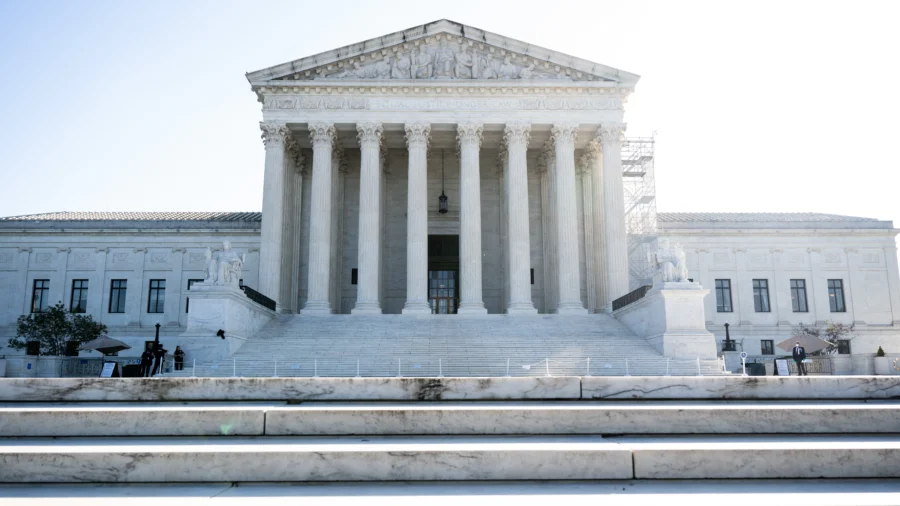The Supreme Court decided on Nov. 4 to hear a racial gerrymandering case from Louisiana.
Gerrymandering is the manipulation of electoral district boundaries to favor a particular party or constituency.
The case will not be heard in time for the Nov. 5 presidential and congressional elections.
The case is actually two cases—Louisiana v. Callais and Robinson v. Callais—which the court has ordered will be heard together.
The court’s new decision came in the form of an unsigned order with comment. No justices dissented.
The court voted on May 15 to direct Louisiana to use a disputed congressional map that creates a second black-majority district in the state in this year’s elections. Three justices dissented.
Opponents of the redistricting plan said it discriminates against non-black voters, but Louisiana’s Republican secretary of state, Nancy Landry, said not moving forward with the map so close to this year’s elections would cause “chaos.”
The Supreme Court’s order stayed an April 30 order issued by a panel of federal judges in the Western District of Louisiana, which found that the map could not be used in upcoming elections.
The dispute comes out of a redistricting plan approved by the Republican-controlled Louisiana State Legislature that was paused by Judge Shelly Dick of the U.S. District Court for the Middle District of Louisiana. Dick ruled in June 2022 that the map, which provided for one black-majority congressional district, discriminated against black voters, who constitute nearly one-third of the state’s population.
The judge ordered the creation of a second black-majority district to comply with Section 2 of the federal Voting Rights Act. Section 2 prohibits voting practices or procedures that discriminate on the basis of race, color, or membership in a large language minority group.
In November 2023, the U.S. Court of Appeals for the Fifth Circuit ordered the Legislature to approve the new map by Jan. 15. The circuit court ruled that if the Legislature missed the deadline, the district court could move forward with a trial in an effort to finalize the map before the 2024 elections.
The new map approved by the Legislature features two black-majority districts. The redistricting plan was criticized by a group of Louisiana voters who described themselves as “non-African American.” They said the map “engaged in explicit, racial segregation of voters.”
Then, on April 30, by a vote of 2–1, a panel of federal judges in the Western District of Louisiana agreed with the non-black voters, finding that the electoral map with two black-majority districts was an unconstitutional racial gerrymander that disfavored non-black voters.
That court had set a June 3 deadline for the map to be revised by the Legislature, failing which it would draft its own map. The state asked that court to stay its injunction pending appeal, but it declined to do so.
Attorneys for the state filed an emergency application with the nation’s highest court on May 10, asking it to put the panel’s ruling on hold.
The state invoked the so-called Purcell principle, which holds that federal courts ordinarily should not enjoin state election laws close to an election. The principle came out of the Supreme Court’s 2006 ruling in Purcell v. Gonzalez.
The justices are expected to hear the Louisiana case early in the new year.
From The Epoch Times

